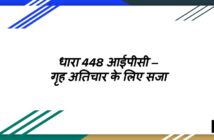Maintenance means to provide support or means of sustenance to the wife, children or parent who are not in a position to earn a sufficient means of livelihood for themselves. There are guidelines provided by the statutes that state the factors to be taken into consideration to fix the maintenance amount.
In this article, we will discuss the maintenance, the types of maintenance, the provisions under which the wife can claim maintenance, and the latest Supreme Court judgments on maintenance of the wife.
What is Maintenance?
Maintenance is an amount given by the husband to his wife during the marriage or upon separation or divorce if the wife cannot live a sustainable life. It includes expenses for necessities or essentials such as food, clothing, shelter, etc. The main objective of maintenance is to prevent the person from living in destitution and reform or upgrade the economic condition of women or children.
Maintenance can be claimed under different personal laws depending on the individual’s religion.
Types of Maintenances
Maintenance could be interim maintenance or permanent maintenance.
Interim Maintenance
Interim maintenance is provided from the date of filing of the proceedings till the case is dismissed. It includes the court expenses and other expenses that are incurred during the proceedings. This amount is paid to meet the petitioner’s immediate or basic necessity (wife, child, or parent), who is financially dependent on the respondent (husband, father, or son).
Permanent Maintenance
Permanent maintenance is an amount paid after the proceedings (i.e., after the dissolution of marriage or judicial separation) by the respondent to the petitioner.
What are the provisions for the Maintenance of the Wife?
A wife can claim maintenance under different provisions of statutes such as;
Hindu Adoptions & Maintenance Act, 1956
Section 18, Hindu Adoption and Maintenance Act entitles a Hindu wife to claim maintenance from her husband during her lifetime and has a right to live separately if the husband is guilty of any misbehaviour or any objectionable conditions as may be specified under the act, namely;
When the husband –
- is liable for desertion, cruelty, or bigamy,
- is suffering from leprosy, or
- converts his religion without his wife’s consent.
Hindu Marriage Act, 1955
Section 24, Hindu Marriage Act, provides that either wife or husband, who cannot sustain his/her life sufficiently or has no independent source of income, can claim maintenance pendente lite (during litigation) and expenses of the proceedings from the spouse.
Code of Criminal Procedure
Section 125 of Cr.P.C. states that where a person who has sufficient means of livelihood refuses to maintain the following people –
- Spouse, or
- Legitimate or illegitimate minor children
- Legitimate or illegitimate children (unmarried daughter) who have attained majority, where such children are unable to maintain themselves due to a physical or mental injury or abnormality, or
- Parents(father or mother) who are unable to support themselves.
Then the court may direct such a person to pay a monthly allowance of maintenance to his dependants(wife, child, or parent) as the case may be, at such a rate as the court deems fit.
A person from any religion can apply to maintenance under this section.
Protection of Women for Domestic Violence Act, 2005
Section 20(2) of the Act mandates the court to award adequate, fair, and reasonable maintenance to the claimant keeping in mind their standard of living.
Muslim Women (Protection of Rights on Divorce) Act, 1986
Section 3(1)(a) states the husband’s liability to provide maintenance to his wife during and after the iddat period.
Section 4, states that where a divorced Muslim woman who does not get married after iddat and is unable to maintain herself, can claim against her relatives (children and parents) who are liable to maintain her in proportion to property that they would inherit on her death according to the Muslim law.
However, suppose such relatives are unable to pay maintenance. In that case, the Magistrate may direct the State Wakf Board to pay such maintenance to the woman.
Special Marriage Act, 1954
Section 36 and 37 provide for alimony pendente lite (during litigation) and maintenance for the special form of marriages.
Latest Supreme Court Judgements on Maintenance of Wife
Rajnesh Vs. Neha & Anr (2020)
The Supreme Court had laid down the features for the maintenance of wife concerning the overlapping jurisdiction issue, payment of interim maintenance, criteria for determining the quantum of maintenance, date from which maintenance is to be awarded, and enforcement of an order of maintenance.
Overlapping jurisdiction issue
The Supreme Court noticed that the wife is not debarred or excluded from making any claim under different statutes such as the Hindu Marriage Act, Domestic Violence Act, and Section 125 of the Cr.P.C. However, it would be unjust for the husband to pay maintenance under successive different proceedings. So, the court had directed that whenever any subsequent proceeding is initiated the party should disclose the previous maintenance proceedings and the order passed during such proceedings so that the court can take into account previous judgement and adjust or set off the maintenance amount accordingly.
Payment of Interim Maintenance
To curb the tendency of hiding the income by the husband and exaggeration of wife’s need, the court directed both the parties to submit the affidavit of disclosure of assets and liabilities of both the parties (husband and wife), all the maintenance proceedings throughout the country.
Quantum of Maintenance
The court further observed that the maintenance amount should be realistic and reasonable and should not be so extreme that it becomes unbearable and oppressive for the husband nor should it be so inadequate that it becomes insufficient for the wife to live a reasonably comfortable life. It has laid down elaborate criteria for determining the quantum of maintenance, such as the parties’ status, financial capacity of the husband, living expenses of the child, serious disability of spouse or child, etc.
Start Date of Maintenance
The court had stated that the maintenance should be granted from the date from which the application is filed before the court to prevent the wife from being reduced to utter poverty.
Enforcement of order of maintenance
It was further stated that order of maintenance may be enforced under Section 28A of the Hindu Marriage Act, 1956 and Section 20(6) of the Domestic Violence Act, 2005 and Section 128 of Code of Criminal Procedure (Cr.P.C), 1973, as per what is applicable. The maintenance order may be enforced as a decree of civil court through the provision for enforcing money decree, including civil detention, attachment of property, etc. as may be provided under section 51, 55, 58,60 read with Order XXI of Civil Procedure Code.
Megha Khandelwal V Rajat Khandelwal (2019)
The wife made an application for a grant of interim maintenance under Section 12 of the Protection of Women from Domestic Violence Act, 2005. Wherein the High Court had awarded Rs. 9,000/- per month as interim maintenance. Dissatisfied with the judgment, the wife had filed an appeal before the Supreme court.
The Supreme Court had enhanced the maintenance amount to Rs. 25,000/- per month, which is to be paid from the date of initiation of the proceeding till the final judgment. The said amount is to be paid on or before the tenth of every month. The Supreme Court had further ensured the disposal of all the pending cases between the parties within six months.
Jennifer Arul V Michael Arul (2021)
The wife had filed an interim maintenance application under the Protection of Women from Domestic Violence Act. Despite various court orders or chances being given, the husband had failed to pay the outstanding maintenance amount of Rs 2.60 Crores along with Rs 1.75 Lakhs to his estranged wife.
Therefore, the Supreme had sentenced the husband to 3 months of civil imprisonment for contempt of the court after the respondent (husband) had failed to pay the maintenance amount as decreed by the court. The court had further stated that a husband could not abdicate his responsibilities of paying maintenance to his wife.
Conclusion
Maintenance is provided to a person who is unable to maintain themselves. It can be claimed under different personal laws applicable to a different religion. However, a person belonging to any religion can claim maintenance under Section 125 of Cr.P.C. To grant maintenance, the court considers various factors such as financial conditions of parties, number of dependents, status, etc.; these factors affect the quantum of maintenance. The order of maintenance can be changed (enhanced or reduced) depending on the circumstance.

